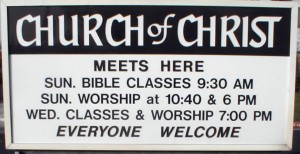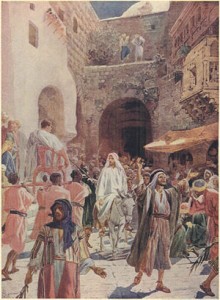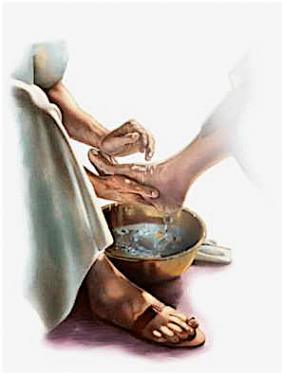Sunday, April 25, 2010. The date means a lot to me. I’ll never forget it. That was the day Don Dupree came up to me following our morning assembly at Legacy, shook my hand, looked me in the eye, and said, “Allan, you are my brother; and you are my preacher.”
Don was a crusty old dude. Very opinionated. Always friendly. But he could be loud and, sometimes, very blunt. He always smiled; he always asked me how I was doing; he was always very pleasant and warm. But I felt like he kept me at arm’s length. I don’t think Don trusted me. He had a lot of old school CofC in him. He was very “rules” oriented. He was very concerned about the “pattern.”
In 2008, Don’s son and daughter-in-law, Rick and Vicki, migrated to our small group. And we loved them. I think our mutual love for all things Van Halen is where Rick and I first connected. And, initially, that was about it. Rick has super long hair, he rides a Harley, he goes to heavy metal concerts, and he doesn’t care at all what anybody thinks. Vicki’s the same way. They don’t exactly fit in with the Legacy church scene. They always felt like outsiders. But I’ve never met a more generous pair. Vicki wouldn’t sing; but she showed up early to small groups and she stayed late washing dishes, cleaning up the kitchen, putting up chairs. Rick wouldn’t lead a discussion; but he read and prayed and sang with everything he had. They cooked for us all the time. They brought our girls gifts all the time. They hosted our small group at their home all the time. The best catfish I’ve ever eaten are at the hole-in-the-wall joints in Fort Worth that Rick and Vicki know best.
Rick and Vicki Dupree needed our small group. And our small group needed Rick and Vicki. They caused us to reconsider what a Christian looks like. They forced us to re-evaluate our judgments, to see the Kingdom of God in bigger ways than we ever had, to pay more attention to people than to patterns of predictability.
In the meantime, Don was still in the minority at Legacy who was holding out on small groups. He kept going faithfully to the little assemblies at the building on Sunday nights. Small groups in people’s homes was new to Don. It didn’t fit with his experience or with his idea of church. So, I think he eyed us with suspicion. He was grateful for what we were doing to help Rick and Vicki get back into church. He was glad Rick and Vicki were worshiping God and serving others with some Christian friends. But he still wasn’t completely sold on me or on our small groups.
In August of that same year, Don baptized Rick & Vicki’s son, Dustin. In November, their daughter Whitney had a baby without a husband. We were all there together at HEB hospital when Mariah was born. In December, our small group hosted a shower for Whitney and Mariah at our house. And then, two weeks later, another one at the Legacy church building.
It was during this time that Don became too sick and too stiff in his bones to get to the church building on Sunday nights. Rick and Vicki were not willing to miss our small group assemblies to get him to Legacy and back. In fact, Rick and Vicki were not willing to miss our small group for anything in the world. So they dragged Don to our house.
And he loved it.
It took some time. But he grew to love it. He’d sit there in our living room with that huge Bible propped up on his lap and in that really, really, really long drawn out drawl, he’d read and he’d talk and he’d pray. He held hands with us when we sang. He shared the bread and the cup when we communed. He laughed when the kids were being funny. And he cried when we all needed to cry.
He loved it.
He loved it when I baptized Whitney, his granddaughter on Sunday February 1, 2009.
We loved Don. We took care of Don. We fixed his plate and snuck him that second dessert. We helped Rick & Vicki get him in and out of the car. We made sure to always sing a song or two that he would enjoy. And he grew to love us. We had to explain to him why we shared communion every Sunday night; we argued occasionally about “patterns” and “decency and order;” we always disagreed about worship styles and women’s roles. But we loved Don. And he loved us.
On April 25, 2010 I preached a sermon from Mark 2:23 – 3:6 called “Which is Lawful?” It was based on Jesus’ question to the religious leaders in the synagogue who were criticizing him for healing on the Sabbath. I pointed out that Jesus didn’t do away with all the rules and regulations of religion, he didn’t throw everything out the window. Rules and regulations will always be a vital facet of life in God’s Kingdom. Our Lord boldly presented two ways of following God’s rules and regulations. “Which is lawful on the Sabbath, to good or to do evil, to save life or to kill?” Jesus says there are two ways to follow the rules. One is good and one is evil. One way gives life to people and one way kills people. One way frees people from burdens and one way places more burdens. One way liberates people from their chains and one way locks people up in prisons.
God’s law is never about the pattern; it’s about people. God’s Church is never about the institution; it’s about people. The priority of human need always outweighs the need for human conformity to rituals. And if we’re partnering with God and his plan to redeem the world, we take care of people first!
It was a tough sermon. It addressed head-on some of the problems we were having at Legacy. It confronted some of the issues that were being debated and it criticized those who were doing the judging and debating. And afterward, as I greeted people in the foyer, here came Don Dupree. I wasn’t sure which way this was going to go. But he grabbed my hand and said, “Allan, you are my brother; and you are my preacher. Thank you!”
I like to think that it wasn’t the sermon that one Sunday morning in the worship center; it was the small group over a whole bunch of Sunday nights in our living rooms and around our dining room tables. It wasn’t the gospel preacher; it was the community of faith. Words didn’t mean nearly as much to Don, I like to think, as our actions with and for one another in our homes. Wasn’t it Francis of Assisi who said, “Preach the Gospel; use words if you must.” Don’s outlook was changed by the way our small group embraced him and his family. His whole attitude was changed forever.
I knew his words to me that day were significant. Those words meant something coming from Don. I wrote them down in my calendar and in my journal. I kept them on my desk where I could see them, rewriting them every month in a different place, a constant reminder that our lives and our actions mean so much more than our sermons and assemblies. And that the toughest hearts can be softened in a loving community of faith.
I got the call from Rick this past Monday night at 6:00. Don had died. Rick’s sister Lisa, the calmer of the Dupree kids who did Carrie-Anne’s and the girls’ hair and nails for four years, had found him on the floor of his house. A blood clot in his leg had gotten to him, possibly a result of a knee replacement surgery he had endured a couple of weeks before. Rick and Vicki were driving in from a vacation in Galveston, and he was a wreck. Carrie-Anne called Lisa.
I love Rick and Vicki Dupree. And I love Don. The Duprees are an eternal part of so many wonderful things that happened for my family while we were at Legacy. I can’t think about those four-plus years without thinking about the Duprees. Three years ago I cringed every time I saw Don approaching me. When we left Legacy to move to Amarillo, I wanted to take Don and his whole family with me. As I’m writing this post, the Legacy church is celebrating his life together and praising God. They are comforting Rick and Vicki, Dustin and Whitney and Mariah and Lisa. And I wish I were there with them.
God bless the Duprees.
Allan
 As children of God and followers of his Christ, we have access to a peace that is unlike any kind of peace the world might promise or provide. The peace of Jesus really is an inner peace that surpasses all understanding. And it’s in us. It’s best described by using the Hebrew idea of shalom: the perfect, harmonious interdependence among all the parts of creation. This kind of peace, which I believe is exactly what Jesus promises to his disciples, is never defined negatively by Jews. Peace is not the absence of trouble or hostility. It means absolute wholeness. It’s physical, psychological, mental, emotional, spiritual wholeness. Completeness. Head to toe, inside and out. Wholeness in our relationships with God and man, in our families and neighborhoods, in our jobs and recreation, with our health and finances. That’s true peace. A full, harmonious, joyful, flourishing life.
As children of God and followers of his Christ, we have access to a peace that is unlike any kind of peace the world might promise or provide. The peace of Jesus really is an inner peace that surpasses all understanding. And it’s in us. It’s best described by using the Hebrew idea of shalom: the perfect, harmonious interdependence among all the parts of creation. This kind of peace, which I believe is exactly what Jesus promises to his disciples, is never defined negatively by Jews. Peace is not the absence of trouble or hostility. It means absolute wholeness. It’s physical, psychological, mental, emotional, spiritual wholeness. Completeness. Head to toe, inside and out. Wholeness in our relationships with God and man, in our families and neighborhoods, in our jobs and recreation, with our health and finances. That’s true peace. A full, harmonious, joyful, flourishing life. After winning their first two games by a combined score of 104-15, our Amarillo High School Sandies football team is ranked #6 in the state of Texas by the AP poll this week and #11 by the Harris. It’s the first time in twenty years AHS has been rated this high and everybody around here’s got a little touch of the Sandies Fever.
After winning their first two games by a combined score of 104-15, our Amarillo High School Sandies football team is ranked #6 in the state of Texas by the AP poll this week and #11 by the Harris. It’s the first time in twenty years AHS has been rated this high and everybody around here’s got a little touch of the Sandies Fever.








Recent Comments